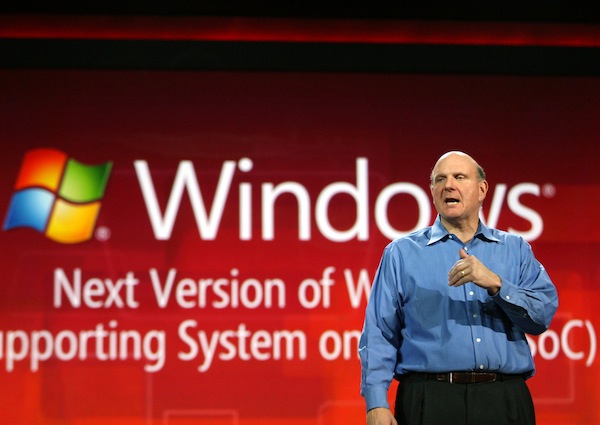Should Microsoft release a branded tablet?

It's Microsoft mystery Monday, with some big announcement coming at 6:30 pm EDT. The current rumors all focus on tablets, with the most recent being a partnership with Barnes & Noble. Can you say Windows Nook? (However, after I posted, Barnes & Noble issued a non-participation statement).
There's a broader question: Should Microsoft release a branded tablet? I pose that to you on this fine day. I'm certainly perplexed. The big advantage to such an announcement is timing. Google is expected to debut its own branded Galaxy Nexus tablet at the I/O developer conference next week. Microsoft could steal Google's thunder by doing something first. But would it be, with Windows 8 still in development? Now it would be big if Microsoft said Windows RT is ready now and this tablet , whether made by Barnes & Noble or somebody else, ships imminently. Otherwise, why bother announce June 18, when OEM partners showed off Windows RT models earlier this month at Computex?
A reader comment by email precipitated this post. He agreed to my calling him Mr. Grist, since he would rather not be identified -- and for good reason. Mr. Grist owns his own tech company, which is a Microsoft partner. This adds important context to his comments, because he's not some Microsoft adversary but a businessman who wants Microsoft to succeed. He writes:
Someone needs to sit Steve Ballmer down and make him write 'Microsoft is not Apple' 500 times. Listening to people like J Allard that wanted to make MS into an Apple clone is what got them into the mess they are in now. Microsoft is successful when they make open platforms for use by OEMs. They are not successful when they try to be Apple.
I posted the comment to Google+, and the responses are coming in. "It seems like they have a need to jump into every market where someone is making money with technology", Paul Hoehn responds. "Just because someone is making money with portable music players, Internet search or phones, does not mean you will make money in that market".
I agree but must point out that presence in any one of those markets is good for Microsoft. Sometimes being No. 2 or No. 3 is good enough, particularly when doing so bolsters products core to the business. Microsoft doesn't need to make much money in any of these markets, as long as the products support the Office-Windows-Windows Server apps stack. But does Microsoft need branded devices to succeed? I wonder, since there already will be Windows logo on them.
Brian Medeiro quips: "Here comes the ZunePad". Jake Weisz responds: "When you stop and think about it, that's Windows RT".
I replied to Mr. Grist, pointing out that Microsoft's tablet, assuming there is one, would likely be outsourced to an OEM. "It doesn’t matter who actually makes the device, it matters how it is branded", he answers. "The Zune was outsourced to Toshiba. The KIN was outsourced to Sharp. But both of those were branded as first-party Microsoft devices and when they failed, the blame was squarely laid at Microsoft’s feet (rightfully so, I might add)".
Brian Wagner asks the right question on Google+: "He really thinks that the Xbox isn't successful?" I'll answer that: Xbox is the exception, not the rule. Microsoft's branded-device failures are greater. Himanshu Mendhe agrees with Wagner, responding to Mr. Grist's comment: "Well, I think the success of Xbox makes his point moot". Does it?
Mr. Grist answers: "The Xbox is different because Microsoft didn’t, and couldn’t readily, produce an open software platform that could be implemented by OEMs for gaming consoles. In the cases of Zune, KIN and now Windows tablets they did/should".
Right, the console market was dominated by end-to-end hardware/software providers when Xbox debuted more than a decade ago. Even still, Microsoft established a software and services platform around Xbox, which hardware has changed little since the 360 released 7 years ago.
"Releasing Windows 8 as a software platform is staying true to what Microsoft is and should be", Mr. Grist asserts. "Partnering with an OEM to release a Microsoft branded tablet is not; it would be trying to be Apple. History shows that isn’t a smart move for MS".
Another question to ask: Is the Windows brand enough? I think it is. Do you? Should Microsoft release a branded tablet? Comments await your answers.